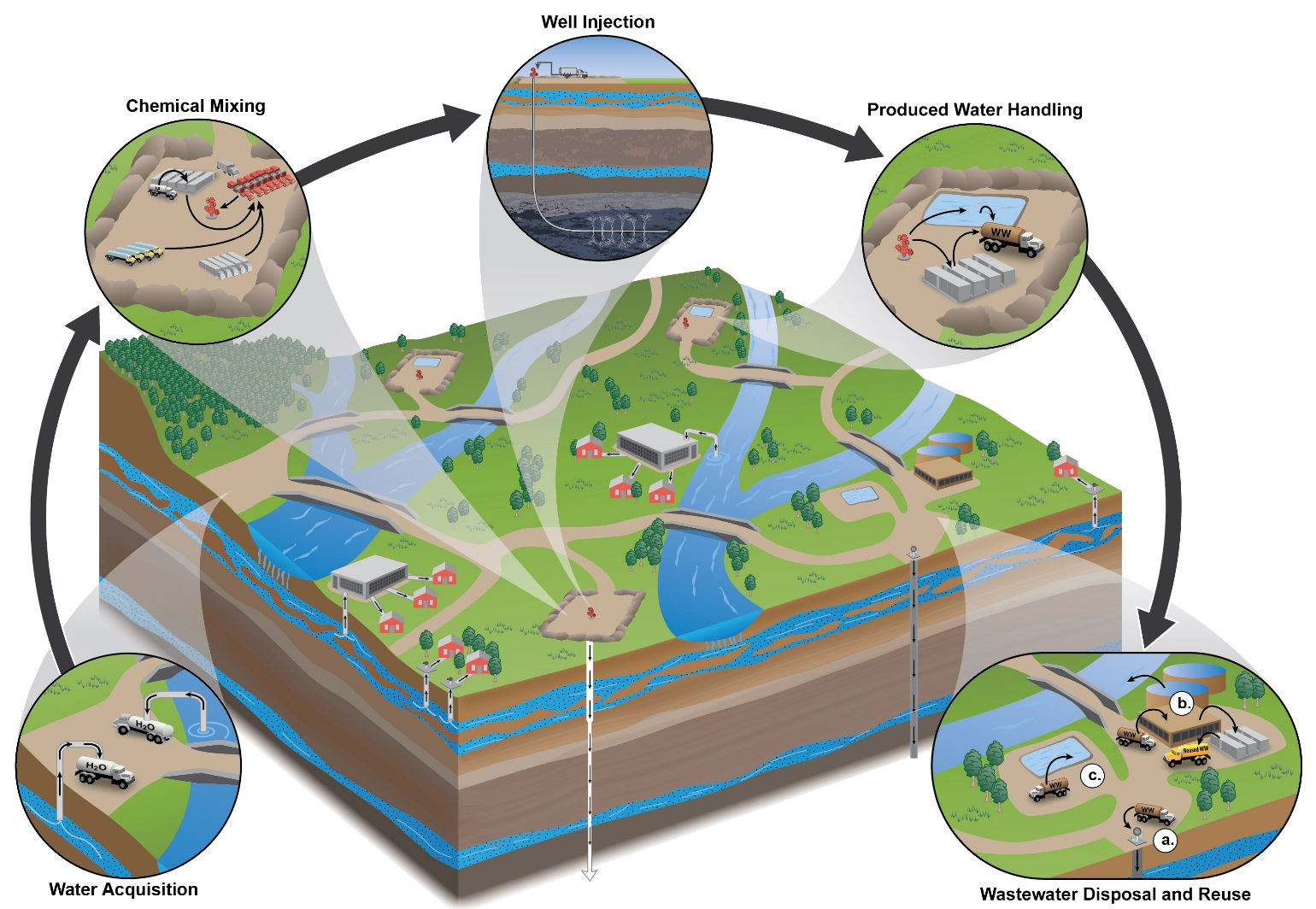Exploiting geological variation within shale deposits and timing in the initiation of hydraulic fracturing, this paper finds that allowing fracking leads to sharp increases in oil and gas recovery and improvements in a wide set of economic indicators. At the same time, estimated willingness-to-pay (WTP) for the decrease in local amenities (e.g., crime and noise) is roughly equal to -$1,000 to -$1,600 per household annually (-1.9% to -3.1% of mean household in-come). Overall, we estimate that WTP for allowing fracking equals about $1,300 to $1,900 per household annually (2.5% to 3.7%), although there is substantial heterogeneity across shale regions.
...
Conclusions
Using a new identification strategy based on geological variation in shale deposits within shale plays, we estimate the effects of fracking on local communities. There are four primary findings. First, counties with high fracking potential produce roughly an additional $400 million of oil and natural gas annually three years after the discovery of successful fracking techniques, relative to other counties in the same shale play. Second, these counties experience marked increases in economic activity with gains in total income (4.4 - 6.9 percent), employment (3.6 - 5.4 percent), and salaries (7.6 - 13.0 percent). Further, local governments see substantial increases in revenues (15.5 percent) that are larger than the average increases in expenditures (12.9 percent) though the increased expenditures seem largely aimed at supporting the new economic activity, with little effect, for example, on per pupil expenditures in public schools. Third, there is evidence of deterioration in the quality of life or total amenities, perhaps most notably marginally significant estimates of higher violent crime rates, despite a 20 percent increase in public safety expenditures....
...
Conclusions
Using a new identification strategy based on geological variation in shale deposits within shale plays, we estimate the effects of fracking on local communities. There are four primary findings. First, counties with high fracking potential produce roughly an additional $400 million of oil and natural gas annually three years after the discovery of successful fracking techniques, relative to other counties in the same shale play. Second, these counties experience marked increases in economic activity with gains in total income (4.4 - 6.9 percent), employment (3.6 - 5.4 percent), and salaries (7.6 - 13.0 percent). Further, local governments see substantial increases in revenues (15.5 percent) that are larger than the average increases in expenditures (12.9 percent) though the increased expenditures seem largely aimed at supporting the new economic activity, with little effect, for example, on per pupil expenditures in public schools. Third, there is evidence of deterioration in the quality of life or total amenities, perhaps most notably marginally significant estimates of higher violent crime rates, despite a 20 percent increase in public safety expenditures....

by Alexander W. Bartik, Janet Currie, Michael Greenstone and Christoper R. Knittel
The University of Chicago Becker Friedman Institute for Research in Economics
Working Paper 2016-29; December 21, 2016
Keywords: Public Policy, Environment, fracking, economic impact, economic growth
The full paper is available free of charge at:
https://bfi.uchicago.edu/sites/default/files/research/2016-29-greenstone-fracking.pdf
https://bfi.uchicago.edu/sites/default/files/research/2016-29-greenstone-fracking.pdf
No comments:
Post a Comment